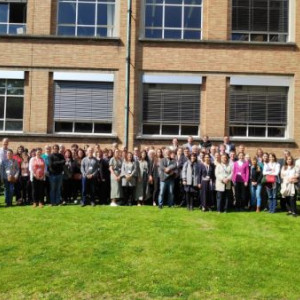 \
&
Contact us
\
&
Contact us
 \
&
Contact us
\
&
Contact us
Published on | 5 years ago
Programmes EnergyH2020-LOW-CARBON-CIRCULAR-INDUSTRIES-2020
On 1 September 2020, a total of 22 proposals were submitted in response to the following topics:
LC-SC3-CC-9-2020 (IA): 4 proposals
LC-SC3-NZE-5-2020 (IA): 18 proposals
H2020-LC-SC3-2018-2019-2020
On 1 September 2020, a total of 250 proposals were submitted in response to the following topics:
LC-SC3-NZE-6-2020 (RIA): 12 proposals
LC-SC3-CC-1-2018-2019-2020 (RIA): 51 proposals
LC-SC3-CC-7-2020 (RIA): 5 proposals
LC-SC3-RES-20-2020 (IA): 16 proposals
LC-SC3-RES-34-2020 (IA): 13 proposals
LC-SC3-RES-3-2020 (RIA): 33 proposals
LC-SC3-RES-25-2020 (RIA): 30 proposals
LC-SC3-RES-36-2020 (RIA): 36 proposals
LC-SC3-ES-13-2020 (IA): 53 proposals
LC-SC3-SCC-2-2020 (ERA-NET): 1 proposal
Source: Funding and Tender Portal
We offer news and event updates, covering all domains and topics of Horizon Europe, Digital Europe & EDF (and occasionally, for ongoing projects, Horizon 2020).
Stay informed about what matters to you.
By signing up, you can opt in for e-mail notifications and get access to
a personalised dashboard that groups all news updates and event announcements in your domain(s).
Only for stakeholders located in Flanders

The Project SeafoodTomorrow is a project that is approved within the call BG-08-2017: Innovative sustainable solutions for improving the safety and dietary properties of seafood.
The three-year SeafoodTomorrow project brings together 34 partners. From Flanders, ILVO takes part in the project.They are responsible for setting up two databases which are the central point of the project to gather all the project data from analysis and assessement. ILVO is also leader of the workpackage dealing with authenticity, traceability and labelling. ILVO is also involved a the workpackage about novel food preparation. And in the managerial part, ILVO is head of the IPC- Intellectual Property Comité.